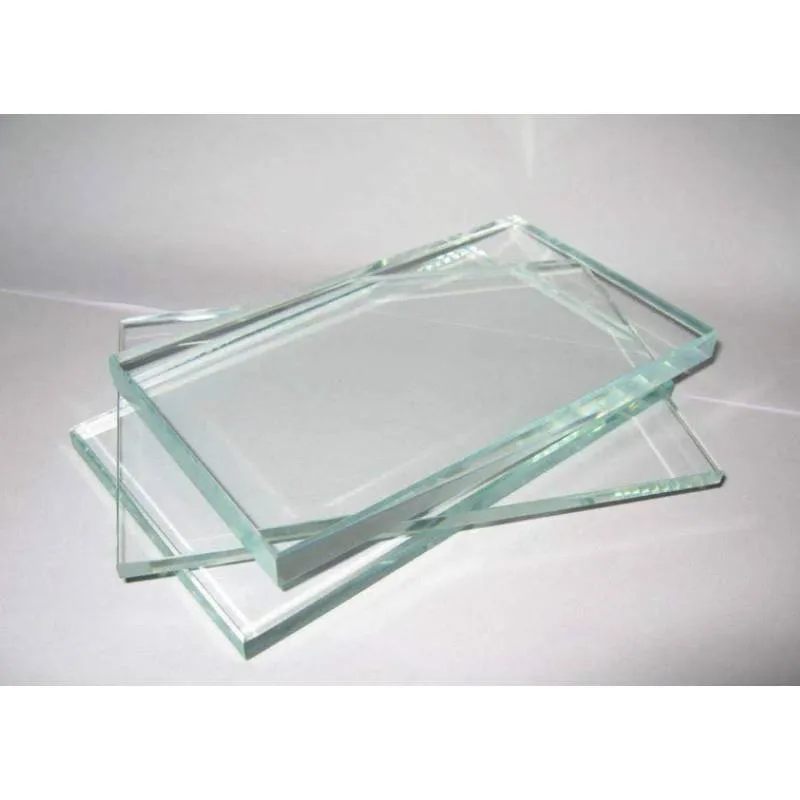Understanding Standard Float Glass Properties, Applications, and Benefits
Standard float glass, often simply referred to as float glass, is a fundamental material in the glass industry. Its production process, unique properties, and wide range of applications make it a popular choice in various sectors, from construction to automotive and beyond. This article explores the characteristics, manufacturing process, applications, and advantages of standard float glass.
What is Standard Float Glass?
Float glass is a type of flat glass that is produced by floating molten glass on top of molten tin. This method results in a smooth and uniform thickness, making it ideal for a variety of applications. The glass itself is typically composed of silica sand, soda ash, and limestone, which are melted together at high temperatures. Once the ingredients have melted, the mixture is floated on a layer of molten tin, which helps achieve a flawless surface. The resultant glass is then cooled and cut to size.
Properties of Standard Float Glass
One of the primary benefits of float glass is its clarity. The manufacturing process allows for a remarkably clear product, free from imperfections, bubbles, or distortions. This clarity makes float glass an ideal choice for applications such as windows and displays, where visibility is paramount.
In addition to clarity, float glass is also known for its strength and durability. While it may not be as strong as tempered or laminated glass, standard float glass still offers excellent resistance to wear and tear, making it suitable for many indoor and outdoor applications. Moreover, it can be easily fabricated into different shapes and sizes, accommodating various design requirements.
Applications of Standard Float Glass
Standard float glass is incredibly versatile and is used in a wide range of applications across various industries. Some of the most common uses include
1. Architectural Glazing Float glass is widely used in residential and commercial buildings for windows, glass doors, and curtain walls. Its smooth finish and excellent optical clarity allow for natural light to flood into spaces while providing unobstructed views.
standard float glass
2. Automotive Industry The glass is an essential component in vehicles, used for windshields, side windows, and rear windows. The clarity and aesthetic appeal of float glass make it a preferred choice for automotive glass manufacturing.
3. Furniture and Interior Design Float glass is often used in furniture, such as tabletops and shelves, due to its elegant appearance and durability. It is also utilized in mirrors and decorative elements in interior design.
4. Display Cases Retailers frequently use float glass for display cases because its transparency showcases products effectively while providing protection.
5. Glass Partitions In modern office designs, float glass is commonly used for partitions, allowing for open, airy spaces while maintaining privacy.
Environmental Considerations and Benefits
In addition to its practical features, float glass is also considered an environmentally friendly material. It is 100% recyclable, meaning that it can be reused in new glass production without major loss in quality. This aspect minimizes waste and reduces the demand for raw materials, aligning with sustainable building practices and environmental conservation efforts.
Furthermore, advancements in float glass technology have led to the production of energy-efficient variants, such as low-emissivity (Low-E) glass, which helps reduce heat transfer and enhance energy savings in buildings.
Conclusion
Standard float glass is a remarkable material that has significantly influenced various industries through its clarity, strength, and versatility. Whether enhancing the aesthetics of a building, providing safety in vehicles, or serving functional purposes in furniture and displays, the importance of float glass cannot be overstated. Its recyclability and adaptations to greener technologies further solidify float glass's role in promoting sustainable practices. As the demand for innovative glass solutions continues to rise, float glass will remain a staple in design and construction for years to come.
 Afrikaans
Afrikaans  Albanian
Albanian  Amharic
Amharic  Arabic
Arabic  Armenian
Armenian  Azerbaijani
Azerbaijani  Basque
Basque  Belarusian
Belarusian  Bengali
Bengali  Bosnian
Bosnian  Bulgarian
Bulgarian  Catalan
Catalan  Cebuano
Cebuano  Corsican
Corsican  Croatian
Croatian  Czech
Czech  Danish
Danish  Dutch
Dutch  English
English  Esperanto
Esperanto  Estonian
Estonian  Finnish
Finnish  French
French  Frisian
Frisian  Galician
Galician  Georgian
Georgian  German
German  Greek
Greek  Gujarati
Gujarati  Haitian Creole
Haitian Creole  hausa
hausa  hawaiian
hawaiian  Hebrew
Hebrew  Hindi
Hindi  Miao
Miao  Hungarian
Hungarian  Icelandic
Icelandic  igbo
igbo  Indonesian
Indonesian  irish
irish  Italian
Italian  Japanese
Japanese  Javanese
Javanese  Kannada
Kannada  kazakh
kazakh  Khmer
Khmer  Rwandese
Rwandese  Korean
Korean  Kurdish
Kurdish  Kyrgyz
Kyrgyz  Lao
Lao  Latin
Latin  Latvian
Latvian  Lithuanian
Lithuanian  Luxembourgish
Luxembourgish  Macedonian
Macedonian  Malgashi
Malgashi  Malay
Malay  Malayalam
Malayalam  Maltese
Maltese  Maori
Maori  Marathi
Marathi  Mongolian
Mongolian  Myanmar
Myanmar  Nepali
Nepali  Norwegian
Norwegian  Norwegian
Norwegian  Occitan
Occitan  Pashto
Pashto  Persian
Persian  Polish
Polish  Portuguese
Portuguese  Punjabi
Punjabi  Romanian
Romanian  Russian
Russian  Samoan
Samoan  Scottish Gaelic
Scottish Gaelic  Serbian
Serbian  Sesotho
Sesotho  Shona
Shona  Sindhi
Sindhi  Sinhala
Sinhala  Slovak
Slovak  Slovenian
Slovenian  Somali
Somali  Spanish
Spanish  Sundanese
Sundanese  Swahili
Swahili  Swedish
Swedish  Tagalog
Tagalog  Tajik
Tajik  Tamil
Tamil  Tatar
Tatar  Telugu
Telugu  Thai
Thai  Turkish
Turkish  Turkmen
Turkmen  Ukrainian
Ukrainian  Urdu
Urdu  Uighur
Uighur  Uzbek
Uzbek  Vietnamese
Vietnamese  Welsh
Welsh  Bantu
Bantu  Yiddish
Yiddish  Yoruba
Yoruba  Zulu
Zulu 

